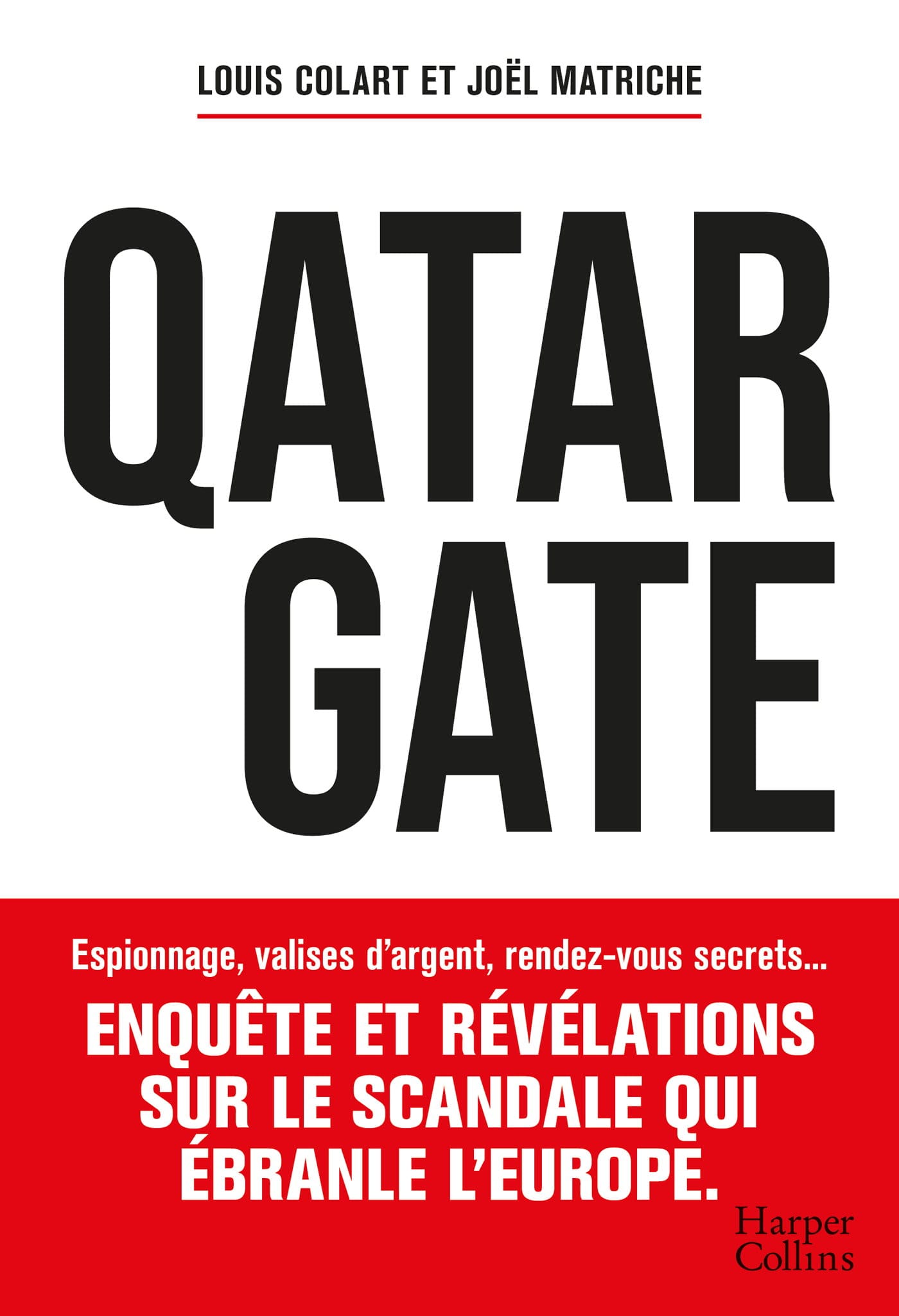
Interview: Louis Colart and Joël Matriche on their book 'QatarGate'
Philippe Mottaz: You have written about the investigation of Qatargate, the largest alleged corruption scandal in the European Parliament. You rightly insist that the presumption of innocence must apply to all. What surprised you most, however, both about the alleged corruptors and the alleged corrupted?
Louis Colart: The first stunner is that the alleged corruption involves massive amounts of cash money. The investigations may uncover other non-cash transactions, but [this amount of cash] is unusual in corruption cases, leading some to believe it was deliberate, as tracing cash is difficult. The investigation has revealed large cash withdrawals from the bank account of the Qatari Embassy in Brussels.
The second surprise is the extent to which non-European countries—authoritarian regimes—are determined to go in trying to burnish their image in Europe, and in public opinion. In this case, [the alleged corruption was in order] to quash or water down resolutions critical of their human rights record.
Joël Matriche: Discovering how permeable the European Parliament and its members were to foreign influence, particularly through the so-called “friendship groups,” was a real eye-opener. [According to the European Parliament, its members “occasionally form unofficial groups to discuss relations with non-EU countries. These ‘friendship groups,’ sometimes sponsored by lobbyists or foreign governments, are not official European Parliament organisations.”] This is just flabbergasting. Imagine the levels of temptation for some members of parliament whose morals might be flexible? What’s easier than to return from a trip with a Rolex on your wrist, or a gold necklace? The system is being reformed, but these “friendship groups” have always operated in a very opaque way, particularly regarding foreign travel.
PHM: Focusing on Qatar and its role in the alleged corruption scheme, how did it all start?
LC: We know this from one of the main protagonists of the scandal, Pier Antonio Panzeri, a former Italian Member of the European Parliament [and founder of the NGO ‘Fight Impunity’] who decided to cooperate with the Belgian authorities. He told the investigators that, back in April 2018, he was approached by Dr. Ali bin Samikh Al Marri [now-Qatari Minister of Labor], who was then the Chairman of Qatar’s National Committee for Human Rights. Panzeri himself was the Chairman of the European Parliament Sub-committee on Human Rights. A few months earlier, Saudi Arabia, the United Arab Emirates, Bahrain and Egypt had started a de facto blockade of Qatar. The blockade was immensely damaging to the image of Qatar on the world scene and, according to Panzeri, led to Doha mounting a large diplomatic offensive. Now, what is not clear is exactly when and how the relationship between Al Marri and Panzeri was transformed from a simple exchange between two people dealing with human rights issues to an alleged paid relationship.
PHM: Minister Al Marri is of particular interest here in Geneva, as he is Doha’s main interlocutor with the International Labour Organisation (ILO), which, since 2018, has had a cooperation agreement with Qatar and an office in Doha, funded by the government. Panzeri’s assistant, Francesco Giorgi, kept an Excel spreadsheet listing all the expenses that went to Qatar’s “lobbying” efforts. You obtained the document. Is there anything relating to Geneva in it?
LC: No, not that we can tell.
PHM: An arrest warrant was initially issued against Dr. Al Marri, but was later suspended. Why?
LC/JM: It is difficult to say with absolute certainty given the ongoing investigation. But we did reveal that the fate of a Belgian citizen held hostage in Iran was discussed, and possibly negotiated, between the Belgian Prosecutor’s Office and Qatar. It’s a high-stakes political game. There has been contact between the Belgian authorities and Doha. The Belgian Federal Prosecutor admitted publicly that in his entire career he had never been under such pressure before, from within his own country and from others. The suspension of the arrest warrant helped Minister Al Marri assume the Presidency of the International Labour Conference.
PHM: Some media reports indicate that the investigation into Qatargate might be fizzling out, and may not lead to convictions. What do you say?
LC/JM: It is difficult, if not impossible, to predict what will happen. We know that at least six people have already been indicted and the investigations are ongoing. There may be more indictments coming. We may end up with out-of-court settlements. Justice works at a much slower pace than journalistic investigations. We wanted to tell the story because, let’s face it, it’s a great story, but also because we thought it was important to lay out the facts and, with the European elections coming up in June, to shed light on the European Parliament.
This interview has been lightly edited for clarity.
